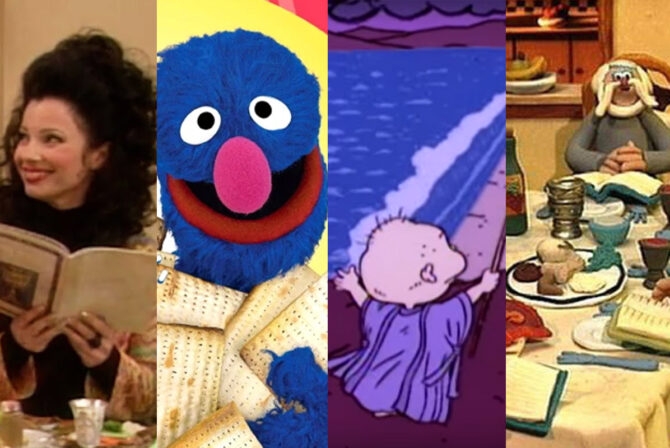This post is part of our Torah commentary series through the perspective of a new mom. This Shabbat we read Parashat Vaera. To read a summary of the portion and learn more, click here.
This week’s portion, Vaera, contains seven of the 10 plagues that God sends Egypt to convince Pharaoh to let the Israelites go.
After each plague, Pharaoh begins to relent, but then he (or, weirdly, God) “hardens his heart” and decides he actually does need those Israelite slaves after all. And so the plagues increase, all the way into next week’s portion.
Reading about these plagues and Pharaoh’s resistance to let those Israelites go, I thought about how hard it is to change after a long time. What does it take to convince a stubborn person to loosen their grip, to be more gentle, to change their life? And why do I feel so sympathetic to Pharaoh even though he’s clearly the bad guy here?
*
Everyone said having a kid would change my life completely; it’s true, but it’s only half the story. Yes, becoming a mother is profoundly transformative. But I am also beginning to realize that having a kid didn’t just magically change my stubborn ass. Instead, what it’s doing is revealing changes I need to make in myself. Which is much, much harder.
The question of change started before Sylvie was born. I was determined to be one of those tough, cute pregnant ladies who just goes about her life, and since I was blessed with an easy pregnancy–no bed rest, no hospital stays–I was able to go pretty much full speed ahead.
Since I’m a musician, for me that meant touring, performing, and recording until two weeks before my due date. I only turned down one invitation during my pregnancy: a weeklong tour in Turkmenistan. I was going to be five months pregnant at that point, and when I read the State Department recommendation that Americans be airlifted out of the country for any medical needs, I decided Turkmenistan was a bit much, even for my imaginary tough, cute pregnant lady self.
But a tour of Italy a couple months later? That sounded pretty safe, and delicious. So at seven months pregnant, my giant belly and I were huddled on a small cot above a rock club that blasted music until 2 a.m. I was touring with my husband and yes, it was a bit romantic, but it was also pretty rough, as you can imagine if you have ever tried to sleep at seven months pregnant (even without music and smoke wafting through the air vents). Add a bad case of bronchitis, and, well, that’s when I began to reconsider the tough, cute pregnant model.
The last stop on our tour was London, where I noticed that the seats on the Tube actually have images of a pregnant woman next to the wheelchair icons. Her belly was about as big as mine. I’d never seen this in the States, and it came as a revelation… maybe being hugely pregnant was actually worth some accommodation!
I had been determined not to ask for any special treatment, to push myself as hard as I always did. But, sitting beneath the pregnant stick figure, I realized I was wrong. Carrying a baby is a true physical challenge. Allowing myself a little extra slack during those times would have been an act of compassion, not weakness.
*
By the end of this portion, seven plagues in, Pharaoh has experienced rivers of blood and flaming hail. He probably senses the Israelites are eventually going to leave Egypt–but he hasn’t been able to let them go yet. He hasn’t been able to relax his grip on what he thought his country had to be. Sometimes he gets close, but then he slips back to his old habits.
I can relate. It’s taken me 20 months of motherhood to admit that I simply can’t live the life I had before. I love my work, it’s an essential part of my life, and I have no intention of stopping altogether. But forging ahead as if nothing has changed? That’s not cute and tough, it’s just denial.
Life doesn’t need your consent to change around you. It just changes. But how you deal with that is in your hands. I used to think I had to hold the course despite whatever came at me. I thought anything else would be failure. Now I’m learning, along with Pharaoh, that’s not true. In trying to hold on to our old lives, we miss out on the blessings of the life we have.
Here’s to learning how to let go–without locusts, boils, or raining frogs.
To read the previous posts in our Torah MOMentary series, click here.
Like this post? Get the best of Kveller delivered straight to your inbox.








